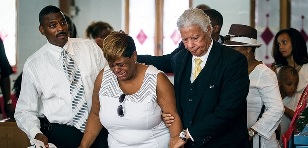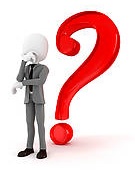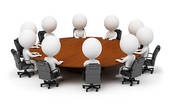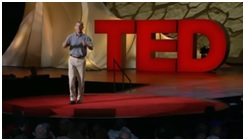


Lead with questions!
Too often, we ask questions that disempower rather than empower. These questions cast blame; they are not genuine requests for information. Other sorts of questions are often no more than thinly veiled attempts at manipulation: Don’t you agree with me on that? Aren’t you a team player? [My favorites are the questions we ask that are really suggestions dressed up like questions. For example, Have you thought about…? or Have you considered…?] So the point isn’t that leaders just don’t ask enough questions. Often, we don’t ask the right questions. Or we don’t ask questions in a way that will lead to honest and informative answers. Many of us don’t know how to listen effectively to answers to questions—and haven’t established a climate in which asking questions is encouraged.
We live in a fast-paced, demanding, results-oriented world. New technologies place vast quantities of information at our fingertips in nanoseconds. We want problems solved instantly, results yesterday, and answers immediately. We are exhorted to forget “ready, aim, fire” and to shoot now and shoot again. Leaders are expected to be decisive, bold, charismatic, and visionary—to know all of the answers even before others have thought of the questions.
Ironically, if we respond to these pressures—or believe the hype about visionary leaders so prominent in the press—we risk sacrificing the very thing we need to lead effectively. When the people around us clamor for fast answers—sometimes any answer—we need to be able to resist the impulse to provide solutions and learn instead to ask questions. Most leaders are unaware of the amazing power of questions, how they can generate short-term results and long-term learning and success.
One of the executives interviewed by Marquardt told him, “if you do not create and maintain a working environment where you are always asking questions of your employees and forcing them to think, then you will probably never be any better tomorrow than you are today.”
John F. Kennedy, at his inaugural address in 1961, asked Americans to ask a different kind of question when he spoke these words: “Ask not what your country can do for you—ask what you can do for your country.” Questions have an amazing degree of power, and Kennedy’s exhortation to Americans on that cold January morning in Washington, D.C.—to ask what they could do for their country—inspired an entire generation to reconsider their values and priorities, to serve others more than be served. Questions can indeed be that powerful. They are surely the most powerful tool that leaders can possibly employ, for they can accomplish enormous results; questions have the potency and force to change individuals, groups, organizations, communities and even nations and the world.

Real leaders can walk around the table.

The leader is not the expert.

Leaders shun complexity!
- provide conditions and good group processes for people to work together
- provide resources of time, the scarcest commodity of all
- insist that people and the system learn from experience, frequently
- offer unequivocal support—people know the leader is there for them
- keep the bureaucracy at bay, creating oases (or bunkers) where people are less encumbered by senseless demands for reports and administrivia [I love that word!]
- reflect back to people on a regular basis how they’re doing, what they’re accomplishing, how far they’ve journeyed
- work with people to develop relevant measures of progress to make their achievement visible